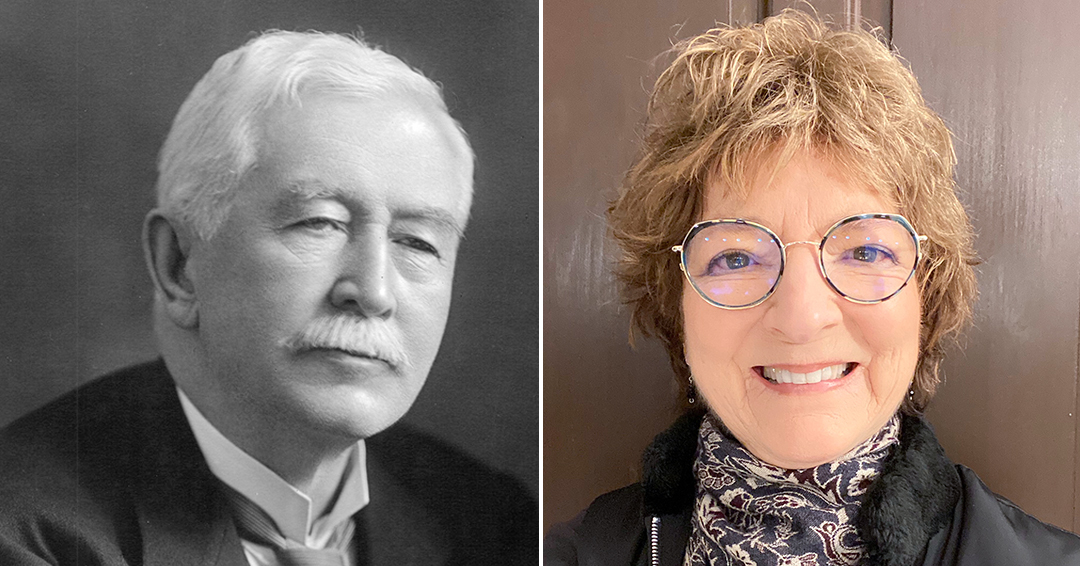
Congratulations to Catherine Hankins, MD, PhD, and the late Sir Thomas Roddick, MDCM, who are among the six new laureates who will be inducted into the Canadian Medical Hall of Fame (CMHF) April 13, 2024 in Vancouver. The announcement of the Class of 2024 was made by Chair of the CMHF Cynthia Forbes, MD, on October 10.
Canadian Medical Hall of Fame Laureates are Canadian citizens whose outstanding leadership and contributions to medicine and the health sciences, in Canada or abroad, have led to extraordinary improvements in human health. Their work may be a single meritorious contribution or a lifetime of superior accomplishments. Pioneers in their field, they are role models who inspire young Canadians to pursue careers in the health sciences. “The Canadian Medical Hall of Fame is proud to welcome these six individuals whose outstanding contributions to health have made Canada, and the world, a better place,” said Dr. Forbes. “Their impact is well documented, and they have earned their place alongside our 155 Laureates.”
Dr. Catherine Hankins
Preventing infectious diseases and protecting vulnerable at-risk populations are just two of the critical public health aims advanced by Catherine Hankins, MD, PhD. Dr. Hankins’ illustrious 40-year career spans many diverse roles and achievements united by her commitment to these goals: providing front-line public health services, leading novel research in response to global emergencies, and translating research findings to inform public health policy. An early advocate of determining women’s risk for HIV in Canada, Dr. Hankins established the first national cohort of women living with HIV in 1993. She also pioneered research on HIV in correctional settings that led to health-benefiting policies in Canada’s penitentiaries. As the global toll of HIV/AIDS grew, Dr. Hankins served with the United Nations as the first Chief Scientific Advisor to the Joint United Programme on HIV/AIDS (UNAIDS), using modelling to inform HIV prevention policy and programs. With the advent of another pandemic, she co-chaired Canada’s COVID-19 Immunity Task Force, where she catalyzed household-based testing of immunity and research among at-risk populations. Dr. Hankins’ inspiring contributions to community medicine demonstrate how research can be harnessed to improve health and health equity around the world.
“This is such an honour,” said Dr. Hankins. “I am truly humbled to be chosen as a Canadian Medical Hall of Fame laureate from among so many deserving others.”
Dr. Thomas Roddick
The Late Sir Thomas Roddick, MDCM, was a physician, educator and Member of Parliament who changed the face of Canadian medicine. He is best known as one of the earliest promoters of antisepsis as common practice in Canada. Dr. Roddick saved countless lives by advancing awareness of this discovery at a time when high post-operative infection rates were standard. Moreover, he was among the first to use these antiseptic methods to treat wounded soldiers. Dr. Roddick’s greatest achievement, however, was a political legacy – one that united the provinces in offering better medical care. His concern for patient safety in light of unstandardized medical education and practice led him to advocate for a uniform system that would encourage consistent care. After 18 years of tireless work, the Canada Medical Act, also known as “The Roddick Bill,” was enacted and the Medical Council of Canada (MCC) was established. His many honours included recognition as ‘honorary president for life’ of the Canadian Medical Association, honorary fellowship in the Royal College of Surgeons of England and membership in the Royal Society of Canada.
Note: Dr. Roddick’s accomplishments were meritorious, however his record of service during a time when the Canadian Government breached terms of treaties with Indigenous communities must also be noted. Dr. Roddick was called to serve as part of Canada’s first military medical corps during the North-West Resistance as a field surgeon and was charged with both surgical and administrative duties. The CMHF acknowledges this fact in Dr. Roddick’s career, understanding that we must learn from history and recognize this battle that had lasting and traumatic effects on Indigenous communities, especially our Métis colleagues.
Related:
Thomas Roddick, antisepsis and the birth of modern surgery at McGill
